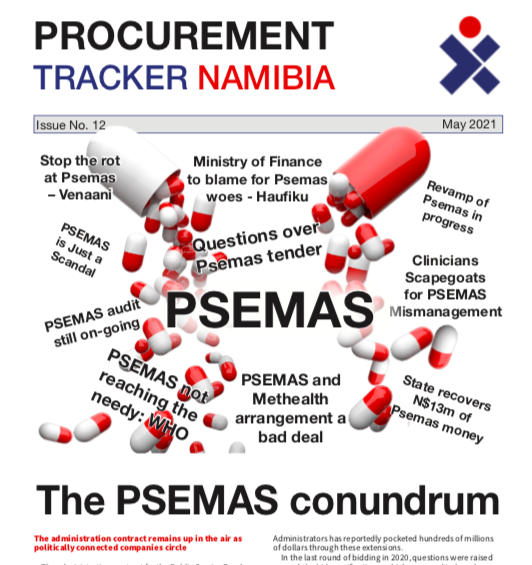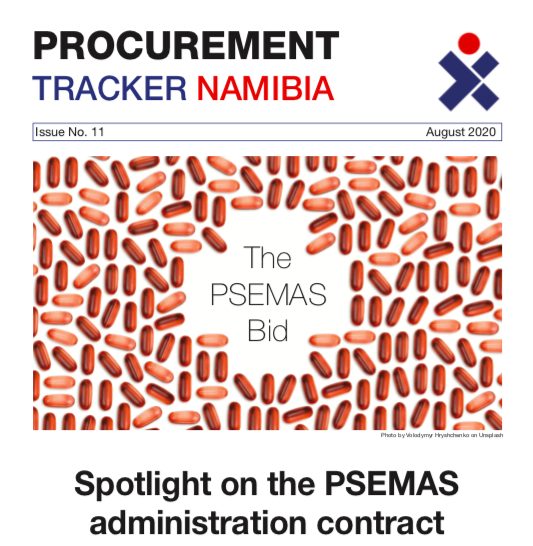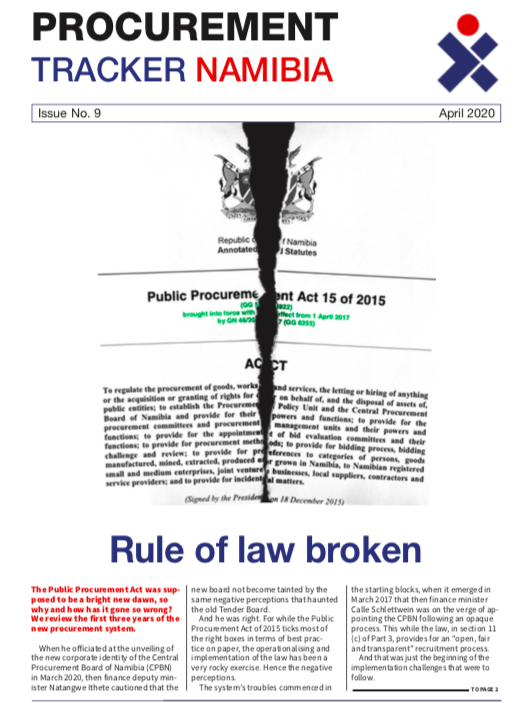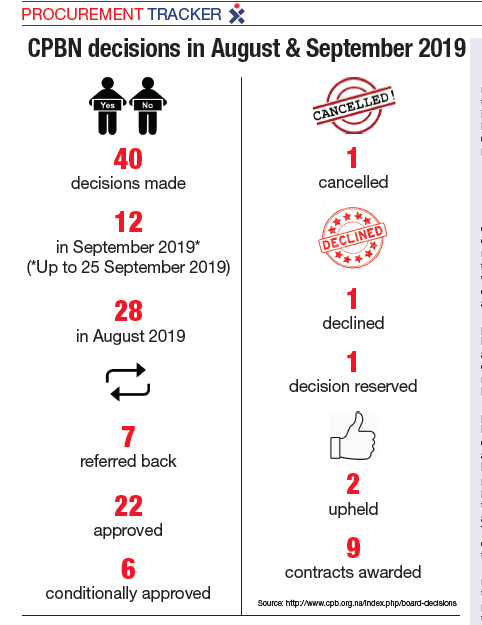The PSEMAS Conundrum

This Procurement Tracker bulletin looks at the delays in the awarding of the contract for the government medical aid scheme and whether the danger of ‘state capture’ is an issue. This bulletin also reports on the controversy around the Defence Ministry allocation of a contract for hand sanitisers and the proposed amendments to the Public […]
Pandemic Procurement – Red Flags Fluttering

The red flags are flying over Namibia’s emergency procurement procedures. This Procurement Tracker bulletin reviews what happened during the March-September 2020 state of emergency and finds a series of concerning issues including: -Short tender periods; -Very few bidders or only one bidder invited to tender; -Few contracts awarded competitively; -Unclear or inaccessible company registration and/or […]
Govt’s Medical Aid Tender In The Spotlight

Questions have arisen over one of the most lucrative tenders in Namibia – for the Public Service Employees Medical Aid Scheme (PSEMAS). This edition of the Procurement Tracker Namibia bulletin examines some of the controversies around the tender which is up for renewal this year. In addition, the bulletin gives an update on procurement issues […]
Public Procurement in a State of Emergency

This latest edition of the Public Procurement Tracker bulletin examines how the integrity of the public procurement system can be undermined during a State of Emergency as the usual checks and balances fall by the wayside due to the need for urgency.
Procurement Tracker Namibia

The April 2020 edition of the Procurement Tracker Namibia bulletin examines how the system based on the Procurement Act passed in 2015 has performed over the last three years. In addition, the bulletin looks at how the COVID-19 pandemic has impacted procurement in Namibia.
Public Procurement Tracker Namibia

Two-and-a-half years since the Public Procurement Act was made operational, the procurement system remains mired in problems – not least a series of capacity issues. The IPPR’s latest Procurement Tracker bulletin outlines the capacity and transparency issues that are dogging the procurement law’s implementation.
Public Procurement Tracker Namibia

E-procurement has been shown to reduce procurement costs, improve efficiency and limit corruption risks yet Namibia’s transition to e-procurement is hardly out of the starting blocks. This edition of Procurement Tracker examines the results of a recent e-procurement readiness exercise conducted by the Ministry of Finance. In addition, the bulletin revisits recent airport-related tenders and […]
Public Procurement Tracker Namibia

Recent statements by senior government figures indicate that the problems that have been experienced with the implementation of the Public Procurement Act since 2017 can no longer simply be described as ‘growing pains’. The latest edition of our Procurement Tracker bulletin examines these recent pronouncements on the faults and gaps in the present system as […]
Public Procurement: Trying to Fix the System
Join us for the launch of the latest Procurement Tracker bulletin and a discussion about recent developments. Please RSVP to Ndeshi at info@ippr.org.na
Procurement remains murky
Access to information on government procurement activities remains largely non-transparent despite repeated claims that the new public procurement mechanisms are meant to enhance accountability and transparency.

